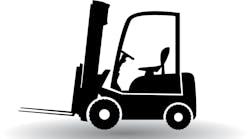Consumers love online shopping, especially during the holidays. Yeah, I know—that’s not exactly a breaking news alert. Something like 100 million people currently subscribe to Amazon Prime, largely to take advantage of free two-day shipping. Of course, that word “free” is a misnomer since it actually costs $119 per year to belong to Amazon Prime (and there are other perks to being a member besides “free” shipping, such as being able to watch “The Marvelous Mrs. Maisel”).
According to some estimates, nearly two-thirds of all holiday purchases this year will be made online, which is a staggering number that I’m not quite sure I’ll believe until I see nearly-empty parking lots and short checkout lines at traditional retail stores. Every year the pundits tell us that “nobody shops at brick-and-mortars anymore,” and every year traffic is just as congested as ever. So there’s still a bit of a disconnect between what people say they’re going to do when asked in a survey, and what they actually do when they need to buy just a couple more things to put under the tree.
Be that as it may, when global logistics provider DHL asked 4,000 companies what they expected to see during the holidays, 70% said they anticipate seeing an increase in e-commerce sales in 2019 compared to 2018. That does represent a bit of a dip in optimism from last year’s survey, though, when 78% anticipated an increase.
When DHL asked, “What do you think is most important for a successful holiday season?” the number one answer (at least from the choices offered), from 49% of respondents, was “fast international delivery services.” It probably goes without saying that DHL did NOT offer “peace on Earth and goodwill towards men” as one of the choices.
Keep in mind, the very nature of “holiday shopping season” has evolved in recent years, thanks to the Internet’s global reach. As Greg Hewitt, CEO of DHL Express U.S., told MH&L earlier this year, “Chinese New Year and Diwali, for instance, have joined Christmas and Valentine’s Day as important, global holidays that see a significant spike in online shopping—and of course corresponding delivery needs.” Hewitt notes that Alibaba’s Singles’ Day and Amazon’s Prime Day are now international events expanding beyond their original domestic borders of China and the U.S., respectively.
“The rise in global holidays has put significant stress on supply chains and logistics strategies,” Hewitt says. “Delivery networks need to adapt to these instances of sporadically high orders, especially given that consumers expect fast and on-time delivery regardless of whether they are seeking a holiday present or a deeply-discounted item for personal use.”
In a separate survey of 2,500 U.S. consumers conducted by last-mile solutions provider Convey, respondents opined that their top concern during the holidays is late delivery of gifts ordered online (note: “peace” and “goodwill” weren’t offered as choices here, either). And while cost (64%) is the most important factor when it comes to choosing shipping options, 19% said speed is most important, which is nearly twice as many (10%) as chose speed in 2018. According to Convey’s research, demand for one- and two-day deliveries increased by 93% year-over year.
“Consumers want shipping to be both free and fast, and store pickup isn’t necessarily a replacement for direct delivery,” says Kirsten Newbold-Knipp, chief growth officer at Convey. “Consumers also expect transparent communication about deliveries and are actively seeking ways to track and manage shipments. For brands that like to think they aren’t competing with Amazon, the data clearly suggests that shoppers think they are.”
The good news for shippers, retailers and logistics providers is that supply chain innovations are rapidly evolving to help answer this demand for faster and freer deliveries (and you can read about some of them in our special report on the “Top 10 Supply Chain Innovations of 2019”). But as consumer expectations keep getting more demanding, as their patience level keeps getting shorter, and as “the holiday season” itself seems to be developing into a series of overlapping, never-ending events, it’s not going to be getting any easier for supply chain professionals.
So, at the very least, here’s to hoping you experience some of the peace and goodwill we talked about earlier, and happy holidays—whatever holidays you celebrate—to you and yours, from all of us at MH&L.




